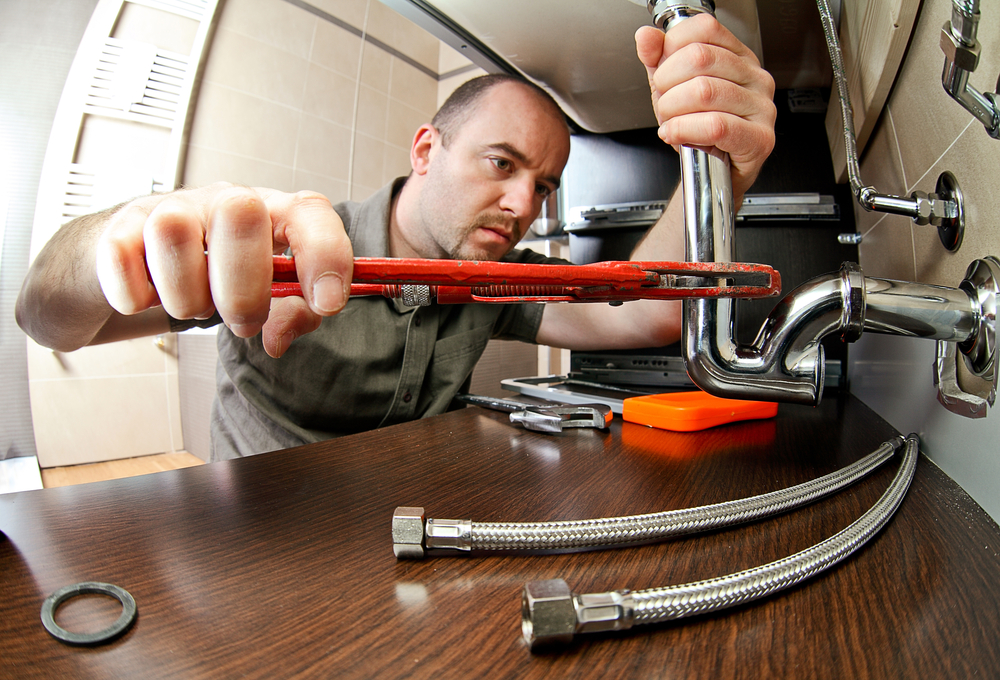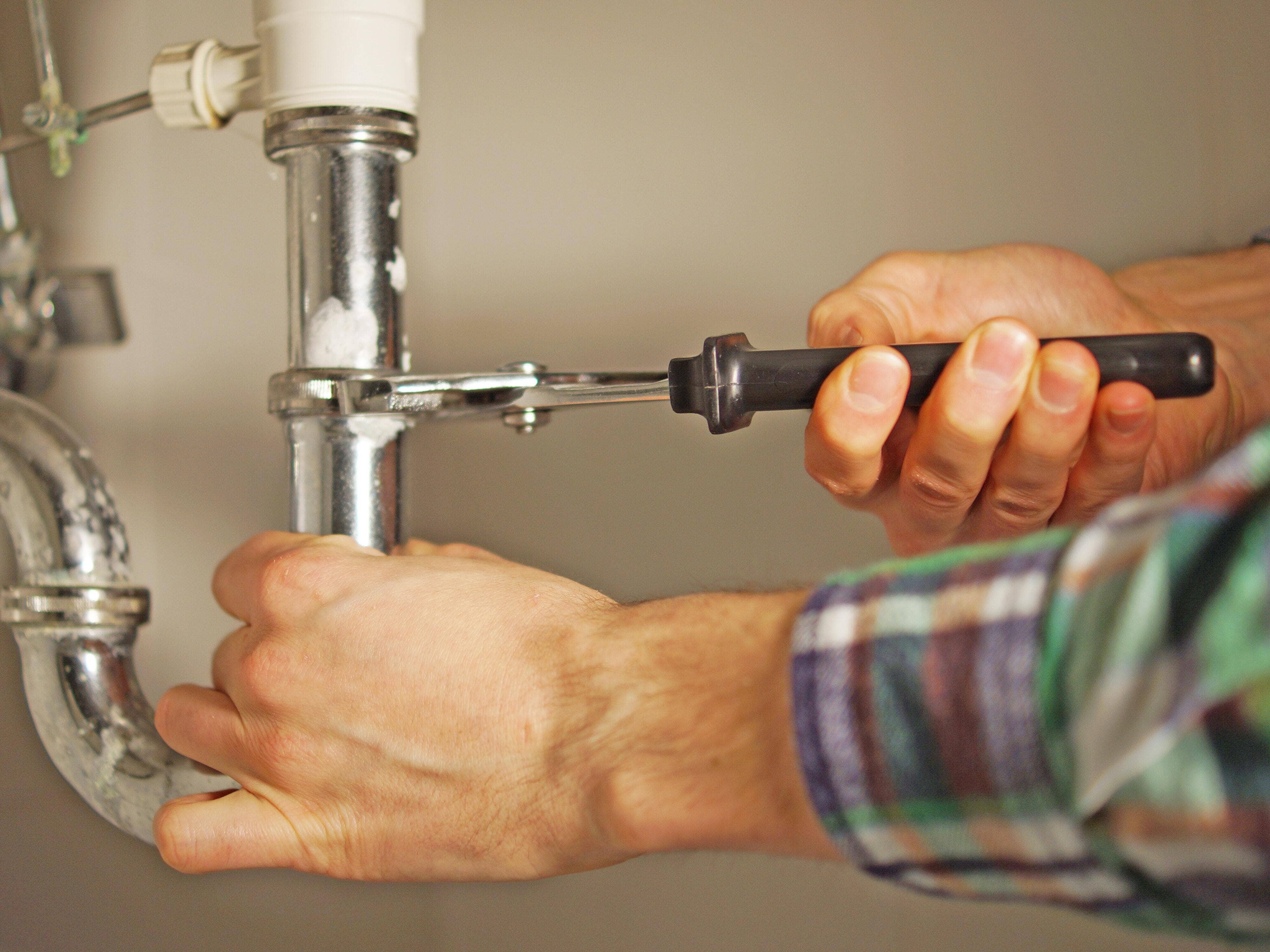Protect The Plumbing Appliances: 6 Critical Oversights To Avoid
Protect The Plumbing Appliances: 6 Critical Oversights To Avoid
Blog Article
We've stumbled on the article about Leak Detection and Repair Without Destroying Your Home listed below on the net and accepted it made good sense to write about it with you in this article.

The trick to durable devices, unsurprisingly, is proper upkeep. There's no set rule that can ensure your plumbing appliances a lengthy wear, but you can stop unnecessary damage as well as fixings by avoiding negative plumbing practices.
You need to stop doing these 6 things else you'll keep calling your plumber over for minor faults.
Flushing everything
Yes, your bathroom drainpipe brings about the drains, yet that doesn't mean you ought to dump simply anything down the drain. Lots of 'flushable' materials are actually fantastic obstruction starters, for example floss. Asides keeping evident non-flushable materials like cords and plastics out of your commode, you must additionally stay clear of flushing cotton swab, menstruation items, wipes, daipers and prophylactics down the toilet drainpipe.
Putting oil in the sink
We know correctly disposing of grease after a hearty meal is a pain. However just pouring it down the drain can do lasting injury to your pipelines. "The fat and grease can clog your drainpipe terribly enough to force you to call a plumber," clarifies Dawson. "Plumbing functions best when it's well cared for-- not abused with oil."
Using way too much drain cleaner
Utilizing a drainpipe cleaner more than once or twice a month is a sign that something major is going on within your pipes. Currently, as opposed to encountering the primary concern, you choose a quick fix; a fizzy drain cleaner. Rightfully, a drain cleaner will look after the clog, yet at what expense?
The chemicals in a drain cleaner can accelerate the corrosion of your pipes. Include that to whatever underlying issue is causing the obstruction as well as you may need to a major problem on your hands.
If you experience a lot of clogs, call your emergency plumber as opposed to utilizing a drainpipe cleaner.
Not rinsing meals prior to loading them right into the dishwasher
it's called a dishwashing machine, yet tossing in meals, pots, and also frying pans covered in large food particles can in fact cause some major damages to the device, bring about long-term problems down the line. "Property owners may need to get their dishwashing machine fixed more frequently if they don't rinse their dishes before loading, or at least remove bigger food items," clarifies Audrey Monell, proprietor of Forrest Anderson Plumbing as well as Air Conditioning in Glendale, Arizona. "Food that gets stuck on dishes creates the dish washer to work harder, which can wear down parts much faster, leading to problems."
DIYing whatever
With plumbing, a stitch in time really does save 9. You can prevent a fullblown plumbing emergency by calling your plumber at the right time.
You might have found out a few plumbing hacks from your daddy, however you ought to understand where to draw the line as well as call a specialist. For example, you may have the ability to fix a blockage on your own, yet you shouldn't try to transform a pipe. You could mismatch pipes or overtighten a screw, creating even more injury and damage than you believed. Calling a plumber is a secure and also economical choice.
Not transforming your dishwasher hoses
One easy way to ensure that you use your dishwasher for years is to change the tube at the very least when in five years. This also obtains washing machine tubes.
With time, food bits, soap as well as oil can develop blockages within your pipelines. Changing them on time will certainly avoid any presure develop that can damage the inner functions of your dish washer or cleaning machine.
An enhanced steel intertwined tube does a terrific work of prolonging your equipment's use time.
No winter season preventative measures
Extreme weather are bad for your pipelines, specifically if they're made of steel. You need to shield your revealed pipelines, and also your water container, even if you have a water heater. You ought to likewise shut off your garden pipe shutoff as well as any other outside water channels. These channels are electrical outlets for cool; you pipelines can begin to freeze from outdoors if you do not.
Prevent Water Damage from Plumbing and Appliances
Prevent toilet failure
Be patient after you flush and wait for the valve to completely finish refilling the tank and bowl. If an overflow looks imminent, lift off the tank cover and lift the float to shut off water flow to the tank, and then turn off the supply valve.
Twice a year, inspect a toilet’s components, such as the fill, supply, and flush valves, and the supply line. Make sure you can turn off the supply. If you have older screw type valves that are hard to turn or start leaking, consider replacing them with simpler ball valves that are easy to shut off quickly.
Inspect and maintain your water heater
Inspect your anode rod every two years, or every year once the warranty has expired, to determine if it needs to be replaced.
Flush water heater tanks every six months to remove sediment by attaching a garden hose to the valve at the base. For safety, first turn off the power and run hot water until it is cool.
Get an annual inspection from a plumbing professional including the shut-off valve and all piping. Signs of broken valves and loose or wet joints and rust are a sign that more severe damage is coming.
Maintain washing machine supply lines
Look for signs the supply hose may be ready to fail—blisters in the hose, worn tubing, stress cracks, or a loose connection.
Replace the supply hose with a reinforced steel braided hose if it shows any sign of wear.
Tighten the connection if it feels loose. The most common site of failure is near the connection where the hose bends.
Replace supply hoses every five years, even if there is no obvious deterioration or wear. Some signs of deterioration may occur from the inside out and may not be visible until it is too late. When replacing washing machine supply hoses, always choose a reinforced steel braided hose over the traditional un-reinforced rubber hose. These hoses will last longer and are far less likely to result in a catastrophic water loss.
Prevent plumbing failure
Never pour grease down the drain.
Plant trees away from lateral drain lines to prevent roots from damaging piping.
If your home’s sewer system is connected to the city’s sewer system—a particular problem for older homes—or if you are located downhill or below street level, contact a plumbing professional to install a backflow prevention assembly into your sewer system.
Call a professional if you notice signs of a plumbing problem—an increased monthly water bill, banging pipes, rust stains, moisture in the walls or on the floor, and signs of wet soil erosion near the foundation.
https://disastersafety.org/maintenance/prevent-water-damage-from-plumbing-and-appliances/

Do you like reading about Ways to Make Your Pipes Last Longer? Place feedback down the page. We will be delighted to know your ideas about this posting. Hoping that you visit us again in the near future. Loved our write-up? Please share it. Help another person check it out. Bless you for your time. Kindly come visit our site back soon.
Get Estimate Report this page